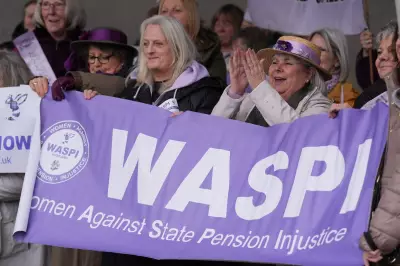
In a significant development for civil liberties in Britain, the High Court has ruled that a legal challenge against the government's ban on protest group Palestine Action can proceed to a full hearing.
Legal Battle Over Protest Rights
The court dismissed the Home Office's attempt to block the judicial review, finding that the case raises "serious issues" that warrant proper examination. This decision represents a substantial setback for Home Secretary Yvette Cooper, who had sought to prevent the challenge from moving forward.
The legal action was brought by a member of Palestine Action, identified only as "AA" for anonymity, following the government's decision to proscribe the group under counter-terrorism legislation last September.
Controversial Ban Under Scrutiny
The ban made membership or support for Palestine Action a criminal offence, carrying potential prison sentences of up to 14 years. The government had justified the prohibition by claiming the group's activities represented a "significant risk to public safety" and national security.
However, lawyers for AA argue the ban constitutes a disproportionate interference with rights to freedom of expression and assembly. They maintain that Palestine Action's campaigning, while involving civil disobedience, has been overwhelmingly peaceful and directed at companies with alleged links to Israeli defence contracts.
Court Finds "Arguable Case"
In his ruling, Mr Justice Chamberlain stated the claimant had established an "arguable case" that the decision to ban Palestine Action was "unlawful on common law principles, under the Human Rights Act, and under the Equality Act."
The judge specifically highlighted concerns about whether the Home Secretary had properly considered the proportionality of banning an entire organisation rather than addressing specific unlawful activities through existing public order laws.
Wider Implications for Protest Rights
This case emerges against a backdrop of increasing government restrictions on protest rights in the UK. The court's decision to allow the challenge comes amid ongoing debates about the balance between national security and the right to political expression.
A spokesperson for Palestine Action welcomed the ruling, stating: "This is the first step toward justice. The ban was a politically motivated attempt to silence solidarity with Palestine by labelling activists as terrorists."
The Home Office maintains that the proscription was necessary and lawful, citing what it describes as the group's "dangerous and disruptive activities."
The full judicial review hearing is expected to take place later this year, with potential ramifications for how protest groups are treated under UK counter-terrorism legislation.





